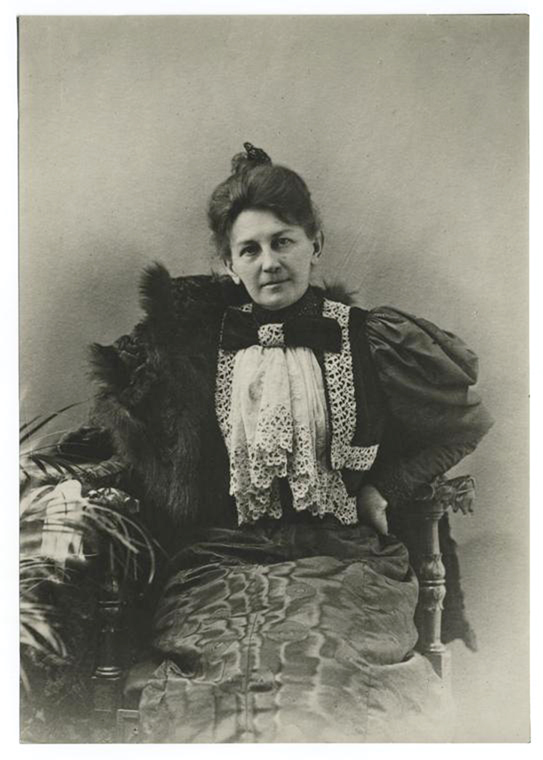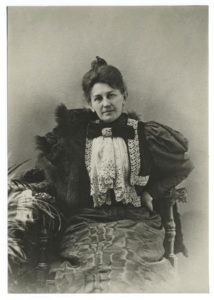Ruth McEnery Stuart
Ruth McEnery Stuart was one of the most prominent Louisiana writers of short stories and poetry in the late nineteenth century.

Courtesy of New York Public Library
Ruth McEnery Stuart. Unidentified
The author of twenty-two volumes—novellas, collections of poetry, and short stories— Ruth McEnery Stuart was among the best known and most popular of nineteenth-century Louisiana writers. Only George Washington Cable rivaled her in fame, particularly as a skillful public reader of dialect stories. Like Cable, Grace King, and other writers associated with local color fiction, Stuart wrote about the history, dialect, and customs of specific regional groups in Louisiana and Arkansas, including rural African Americans.
Born Mary Routh McEnery, Stuart was the eldest of eight children and the daughter of a politically and economically prominent family in Marksville. While the exact year of her birth is uncertain (February 19, 1852, on her marriage certificate, 1849 in other records), her parents, Mary Routh Stirling and James McEnery, moved to New Orleans when Stuart was very young. The recipient of a good education, she became a teacher after the Civil War. In 1879, she married a wealthy Arkansas planter, Alfred Oden Stuart, thirty years her senior, and moved to his home in Washington, Arkansas. In 1883, shortly after the birth of their son, Stirling, Alfred Stuart died and his widow returned to New Orleans, where she began her writing career.
Her first published stories—“Uncle Mingo’s ‘Speculations’” and “The Lamentations of Jeremiah Johnson”—appeared in New Princeton Review in 1888. Encouraged by this success, Stuart moved to New York, where she soon became a popular writer and a fashionable southern hostess. Though her son’s accidental death in 1905 was a severe setback, Stuart continued to write, publishing more than seventy-five stories between 1888 and 1917. In addition to popular plantation collections like A Golden Wedding, Sonny: A Christmas Guest, and Napoleon Jackson, Stuart wrote about urban immigrant communities: French, German, Irish, and Italian. She also published several volumes based on her Arkansas experiences, including The Woman’s Exchange of Simpkinsville, In Simpkinsville: Character Tales, and The Second Wooing of Salina Sue. Despite their comic intent, these latter stories often reflect Stuart’s progressive views on the changing roles of women. In fact, she was one of the few southern women writers who publicly supported women’s suffrage.
Fellow writers like Kate Chopin and Joel Chandler Harris praised Stuart for the authenticity of her dialect and her “faithful” portrayal of black life; her mostly white audiences concurred, seeing in her cheerful and often condescending tales accurate depictions of black southerners. Modern readers, on the other hand, have often found her representations more problematic. While Stuarts’s black characters are generally presented sympathetically, her comic purposes and limited perspectives frequently flatten black characters into stereotypes.
In 1915, Tulane University awarded Stuart, along with fellow writer Grace King, an honorary degree. Stuart died in New York two years later on May 6, 1917, and was buried with her son in New Orleans. As a testament to her achievement, many of Stuart’s works remained in print long after her death, while a literary club, founded in 1907 and named in her honor, still flourishes today.
